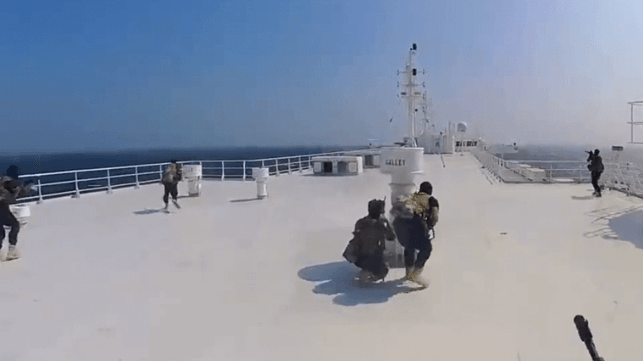After Shipping Attacks, U.S. Imposes More Sanctions on Houthis' Backers

The U.S. Treasury has blacklisted three organizations for helping to transfer Iranian funds to Yemen's Houthi rebels, who have attacked international shipping in the Red Sea for more than a month.
According to the Department of State, the groups have helped move millions of dollars to the Houthis at the direction of a sanctioned Iranian financial group, Sa’id al-Jamal, affiliated with Iran's Islamic Revolutionary Guard Corps-Qods Force.
The designees include Nabil Ali Ahmed Al-Hadha, the head of the Currency Exchangers Association in Sana’a, Yemen; Nabco, his banking firm; and Al Aman, a Turkish financial services house.
Since the beginning of Israel's operation against terrorist group Hamas in Gaza, the Houthis have launched more than 100 missile and drone attacks on merchant shipping in the Red Sea. They have also captured and held an Israeli-linked car carrier, the Galaxy Leader, and have allowed it to become a local tourist attraction for Yemeni citizens.
So far, no seafarers have been reported injured by Houthi strikes or abductions, thanks in part to an American-led maritime security campaign in the Red Sea. U.S. Navy destroyers and carrier-based fighters have shot down dozens of inbound Houthi munitions, preventing them from reaching their intended targets. There have also been no further hijackings since the increased Navy presence began.
The U.S.-led security operation has had limited success in gaining support from allied nations, even those who have signed up with existing security partnerships in the region. Italy and Spain have recently distanced themselves from the coalition, bending to domestic political pressure and widespread disapproval of the Israeli security operation among European citizens.

that matters most
Get the latest maritime news delivered to your inbox daily.
Germany's governing coalition has announced plans to step up pressure for a European response to the security crisis in the Red Sea. The German economy could be affected: all diverted Asia-North Europe voyages that head around Cape of Good Hope take about 10 days longer than normal, adding time and cost for commercial shipments to and from German ports.
"We as the German government are ready for this. It is important that we as the EU are able to act as quickly as possible in view of the ongoing attacks," a spokesperson told Reuters.
